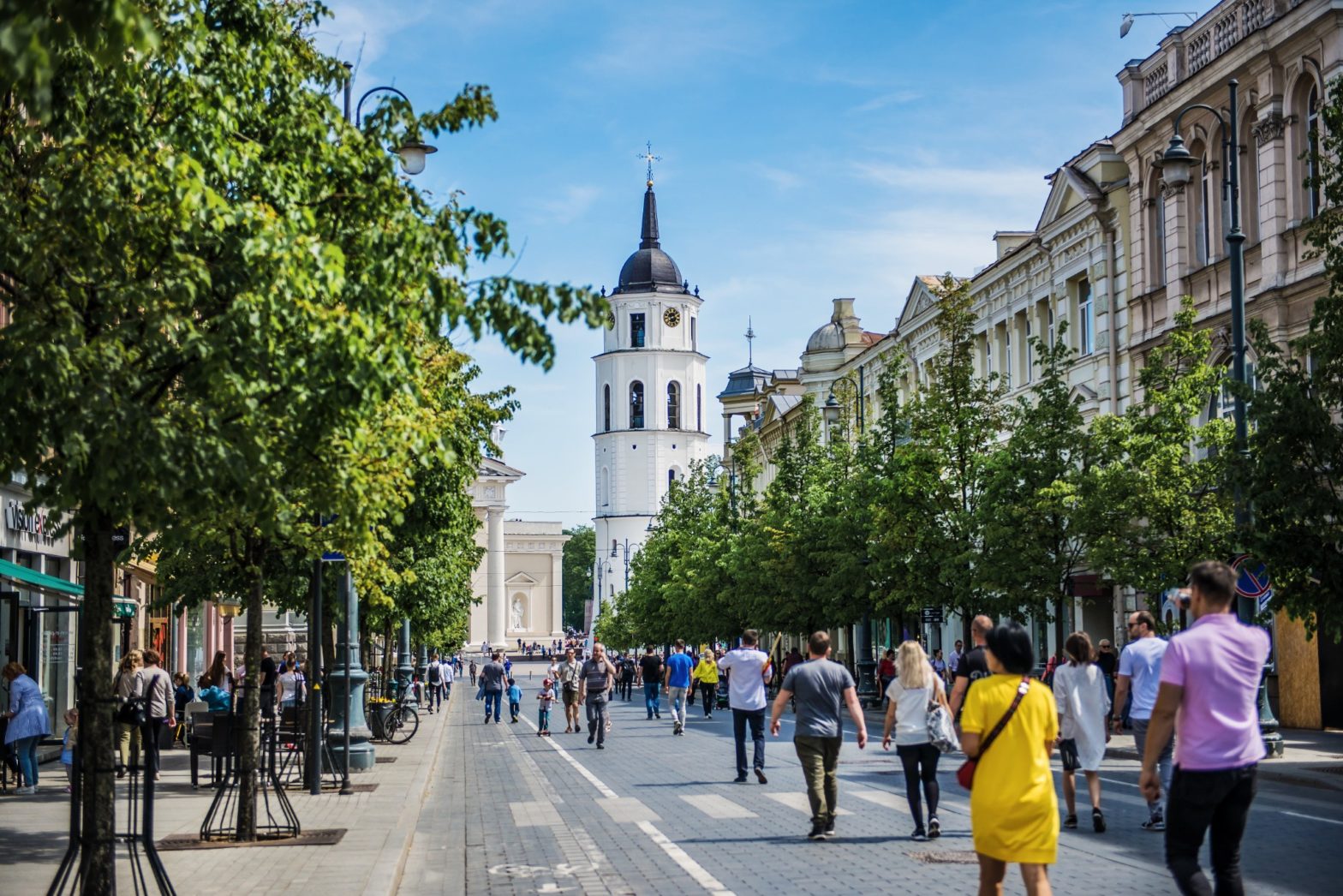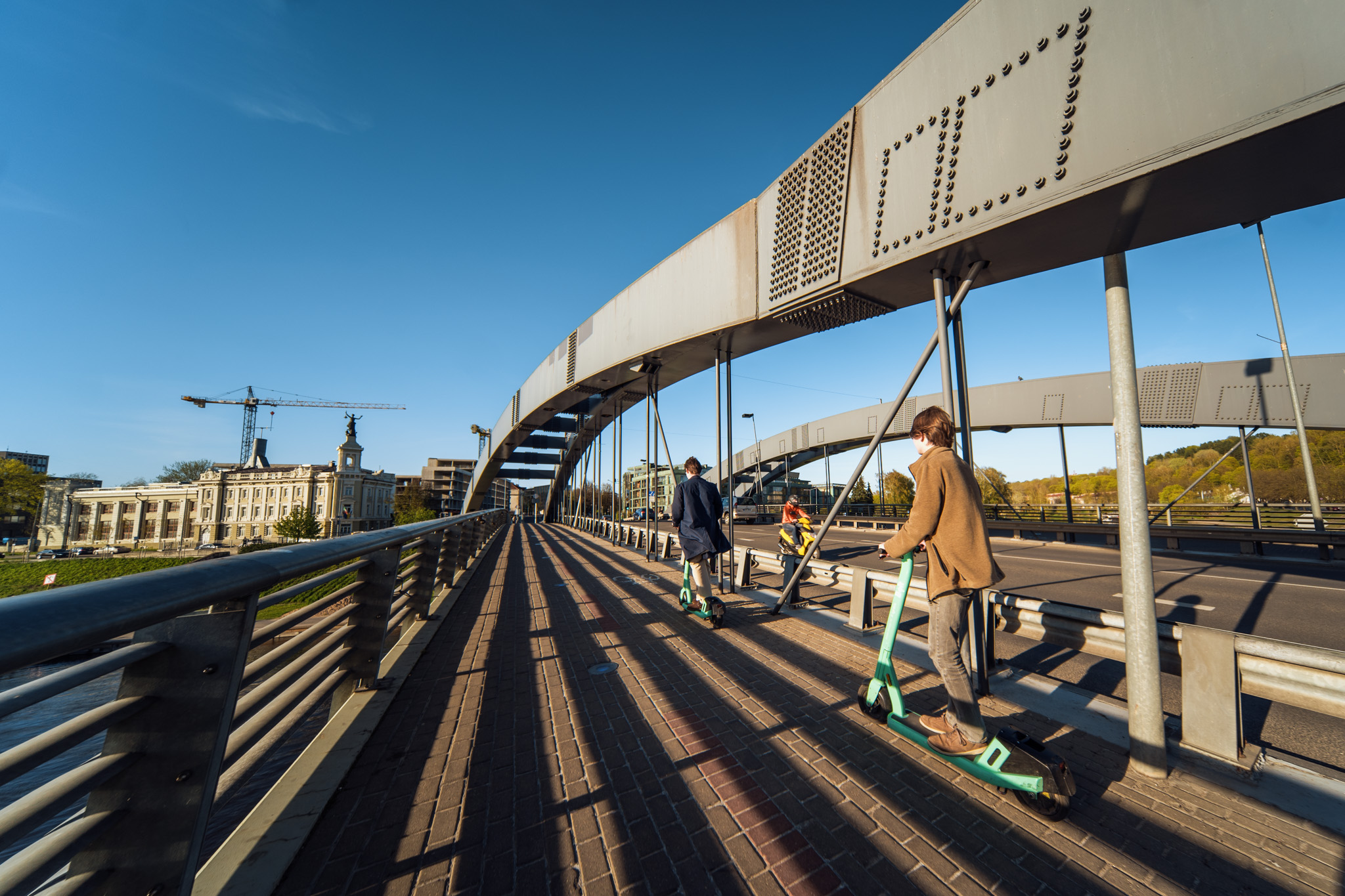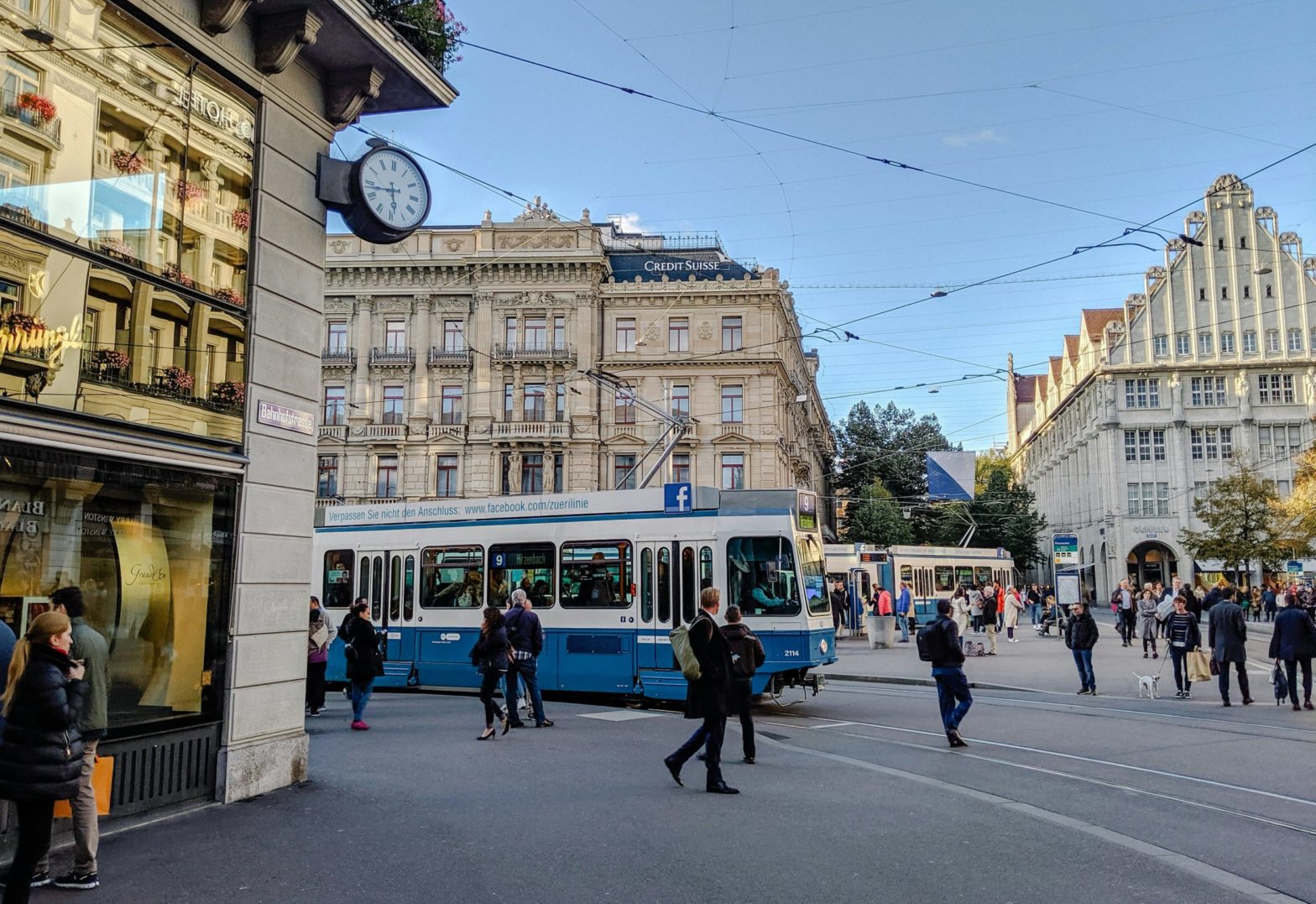
Photo: © Go Vilnius. Cathedral
‘Incentives, not force’ drive sustainable mobility in Vilnius
15 December 2022
by Christopher Carey
Nestled in northeastern Europe, Lithuania’s capital Vilnius has been undergoing something of a mobility renaissance.
Over the past decade, the Baltic city has been quietly chipping away at improving its urban infrastructure, shedding its Soviet past and putting itself at the forefront of mobility innovation.
At the heart of this transformation has been a policy of improving conditions for pedestrians and cyclists, which has resulted in a five-fold increase in the number of bike lanes across the city over the past seven years.
“Ten to fifteen years ago, pedestrian movement within the city centre started to dramatically decrease – people were moving out to the suburbs, using more cars, and the infrastructure for walking and cycling wasn’t in good shape,” Vilnius Mayor Remigijus Šimašius told Cities Today.

“Over the past two years in particular, we’ve started to connect our network of bike lanes to each other across neighbourhoods. It’s really good to see.”
“We now have 150 kilometres of quality bike lanes – seven years ago it was between 20 and 30 kilometres.”
The bike lane expansion has been coupled with an increase in pedestrianised areas and crossings, and closing some streets to cars on certain days.
“I would say this expansion of cycling and increase in pedestrians is probably the most important mobility development Vilnius has seen,” Mayor Šimašius added.
“When going to work, I usually cycle or combine public transport and walking, and occasionally I’ll drive.
“But walking is my favourite way to get around [the city].”
Sharing is caring
Unlike some European cities, Vilnius doesn’t think cars should be pushed out altogether – in fact, it actively promotes carsharing as part of its multimodal mix.
The city lays claim to having the highest proportion of shared cars per capita in the world, something it sees as key to nudging residents away from personal ownership and reducing emissions.
The scheme counts around 1.5 million trips per year, and almost 20 percent of residents have used the service that is provided via two apps – one of which is dedicated to fully electric vehicles.
“I don’t own a car, and have never owned a car. It’s possible to live here without having one,” said Vilnius’s Chief Engineer, Anton Nikitin.

“If I am in a situation where I need to use a car, like if I have to buy some things in IKEA, I just use the carsharing service.”
Working with the private sector, the city created the Vilnius Shared Mobility Cluster in June 2022 – aimed at boosting carsharing services and promoting sustainability by reducing the number of individual vehicles on its streets.
“It’s a platform to exchange ideas and work together with shared mobility stakeholders,” Nikitin explained.
“Both for quick changes like parking management or more long-term collaboration on how to work better together and where the city can be a good sandbox for new ideas.”
The municipality estimates that one shared car has the same carbon footprint as 12 personal vehicles, and the service also frees up parking spaces given how private cars are estimated to be parked 95 percent of the time.
Nikitin also believes shared vehicles offer more safety since they are all relatively new and regularly maintained, and “reckless drivers” are banned from using the service.
This oversight also extends to micromobility, where close cooperation with the shared providers keeps things on an even keel.
E-scooters are removed from nightlife areas at the weekend to avoid drunk riding, and innovations like taking photos of a vehicle at the end of a trip to ensure it’s safely parked originated in Vilnius.

The municipality is currently looking at creating e-scooter zones, where devices can be parked and charged.
“It’s good for the city because the e-scooters are in certain locations and not cluttering the streets, and better for the operators because the devices can be charged in one place, so they do not have to be going back and forth,” added Šimašius.
“And they don’t have angry and frustrated pedestrians damaging the e-scooters…it happens!
“It’s good for the customers too because they will get a price incentive for charging the devices here.”
This incentive-based approach to sustainable travel also extends to the city’s own employees, with the municipality providing free public transport passes to discourage private car use.
“In many cities, we can see many institutions providing free car parking for their employees, but no incentive for public transport.
“I’m surprised by how little this low-hanging fruit is picked up by other cities.
“We don’t have to force people towards sustainable transport – we need to incentivise.”












